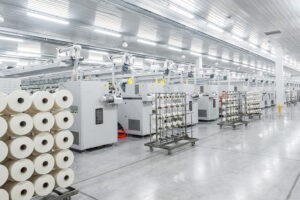
Empirical guide to improve Labour productivity in Spinning mills
1.0 Introduction In the present scenario, there is a challenge that confronts every mill whether it is large or small; how to make sustainable profits

1.0 Introduction In the present scenario, there is a challenge that confronts every mill whether it is large or small; how to make sustainable profits

Yarn recovery is becoming a big challenge for spinning industry to cut down the cost due to the current spike in cotton prices. When the

Health and hygiene have always been a high point of concern for everyone, across the globe. However, the factors of hygiene started playing a big

Yarn quality plays a significant role in the downstream processes like knitting and weaving. The performance of the yarn in knitting and weaving are judged

What we understand of the apparel and garment industry today was not like this before. Before the beginning of the Industrial Revolution in the late

Consumerism is linked to paying a certain amount for products we choose to buy as consumers. In most cases this value is pre-determined and the

The textile industry has been progressing in leaps and bounds over the years. In recent times, the industry celebrated many new innovations and progress that

Textile and Apparel sector was among the worst Covid affected sectors in 2020. The trade between countries nosedived as the production of goods almost came to

For more than 225 years Rieter has been a powerful driving force in the global spinning industry and its sales numbers serve as ‘Health Indicators’ for the spinning industry.

In the Covid-19 pandemic year, the cotton value-chain, like others, has faced unprecedented disruptions. The industry was expected to have a decrease in the production and consumption owing to the Covid restrictions. Yet the cotton textiles supply chain in India has shown resilience, as the cotton consumption in the country during 2021-2022 is expected to reach around 26 million bales which is at par with pre-Covid consumption levels.